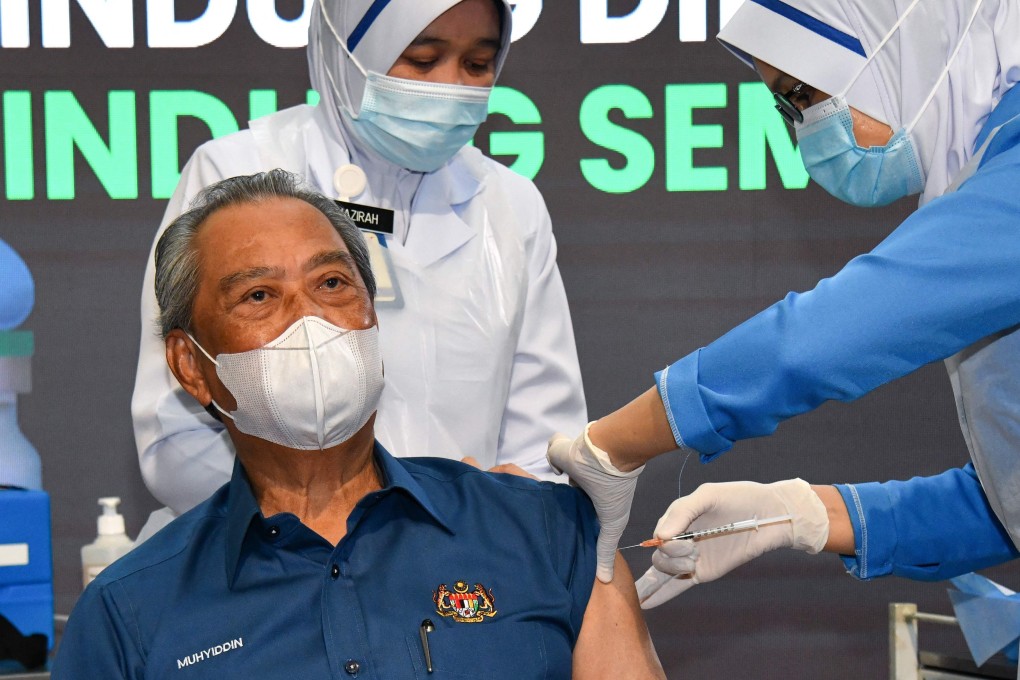Singapore discusses coronavirus vaccine certification; Malaysian PM receives first dose
- Singapore PM Lee Hsien Loong said Covid-19 vaccine certificates are a necessary step towards the resumption of international travel
- Elsewhere in Asia, Malaysia started rolling out its programme with PM Muhyiddin Yassin the first to be vaccinated, and Vietnam received its first doses

“Even if each of us gears up to secure our own supplies, we must cooperate internationally so that all countries including developing ones have access to vaccines for their people,” Lee said in a video recording posted on Facebook on Wednesday.
“We are also discussing mutual recognition of vaccine certification with interested countries,” he said. Lee did not specify the countries.
Singapore’s economy, which recorded its worst recession in 2020 due to the pandemic, is staging an uneven recovery this year and a return of more business and tourism travel would be a boost for the city state.
Greece, Spain and Britain are among other nations looking into the idea of vaccine certificates or so-called vaccine passports in a bid to revive economies and travel.